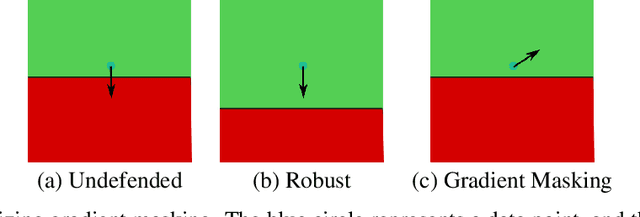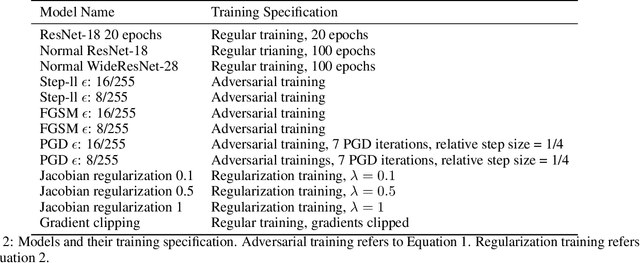Measuring the False Sense of Security
Paper and Code
Apr 10, 2022



Recently, several papers have demonstrated how widespread gradient masking is amongst proposed adversarial defenses. Defenses that rely on this phenomenon are considered failed, and can easily be broken. Despite this, there has been little investigation into ways of measuring the phenomenon of gradient masking and enabling comparisons of its extent amongst different networks. In this work, we investigate gradient masking under the lens of its mensurability, departing from the idea that it is a binary phenomenon. We propose and motivate several metrics for it, performing extensive empirical tests on defenses suspected of exhibiting different degrees of gradient masking. These are computationally cheaper than strong attacks, enable comparisons between models, and do not require the large time investment of tailor-made attacks for specific models. Our results reveal metrics that are successful in measuring the extent of gradient masking across different networks
 Add to Chrome
Add to Chrome Add to Firefox
Add to Firefox Add to Edge
Add to Edge